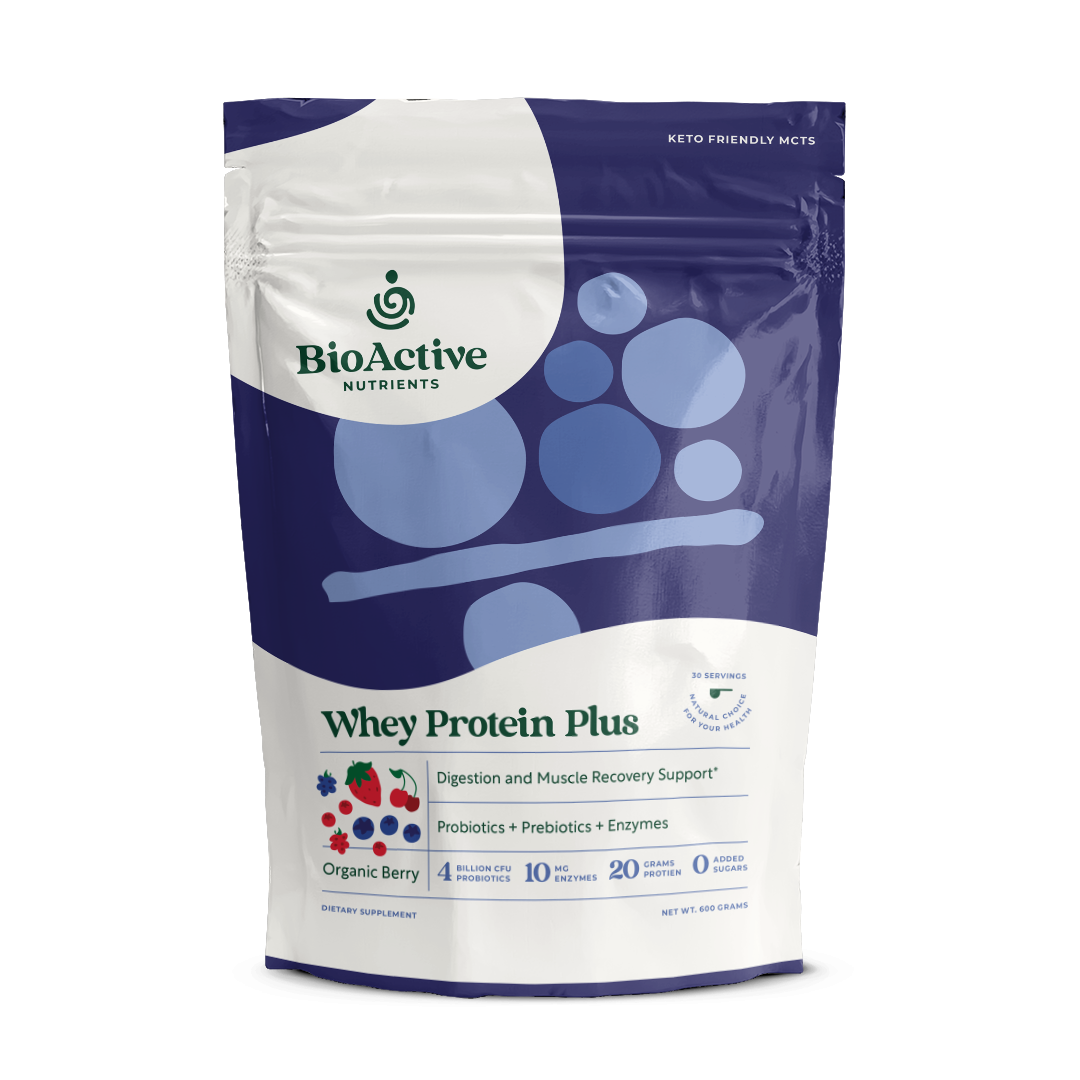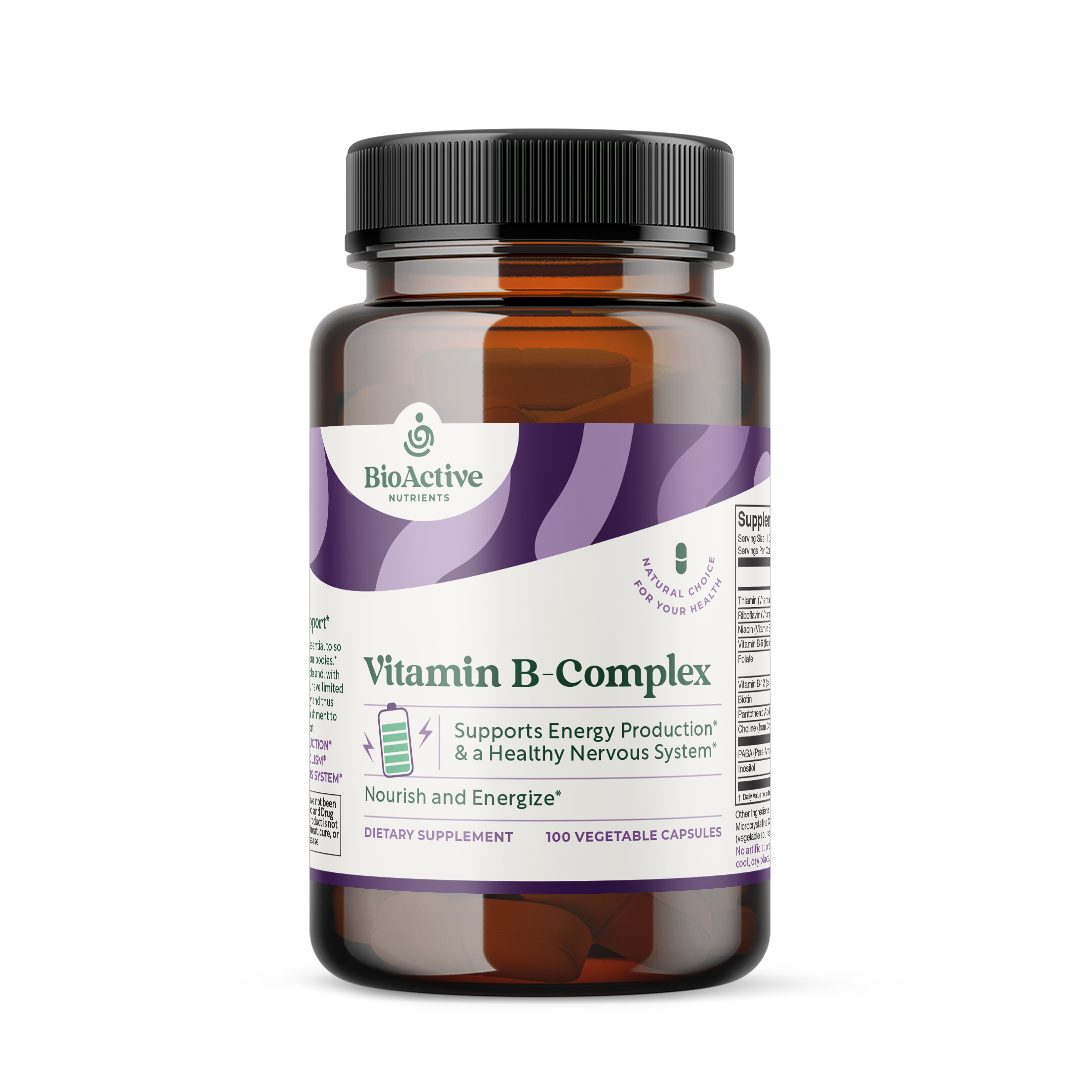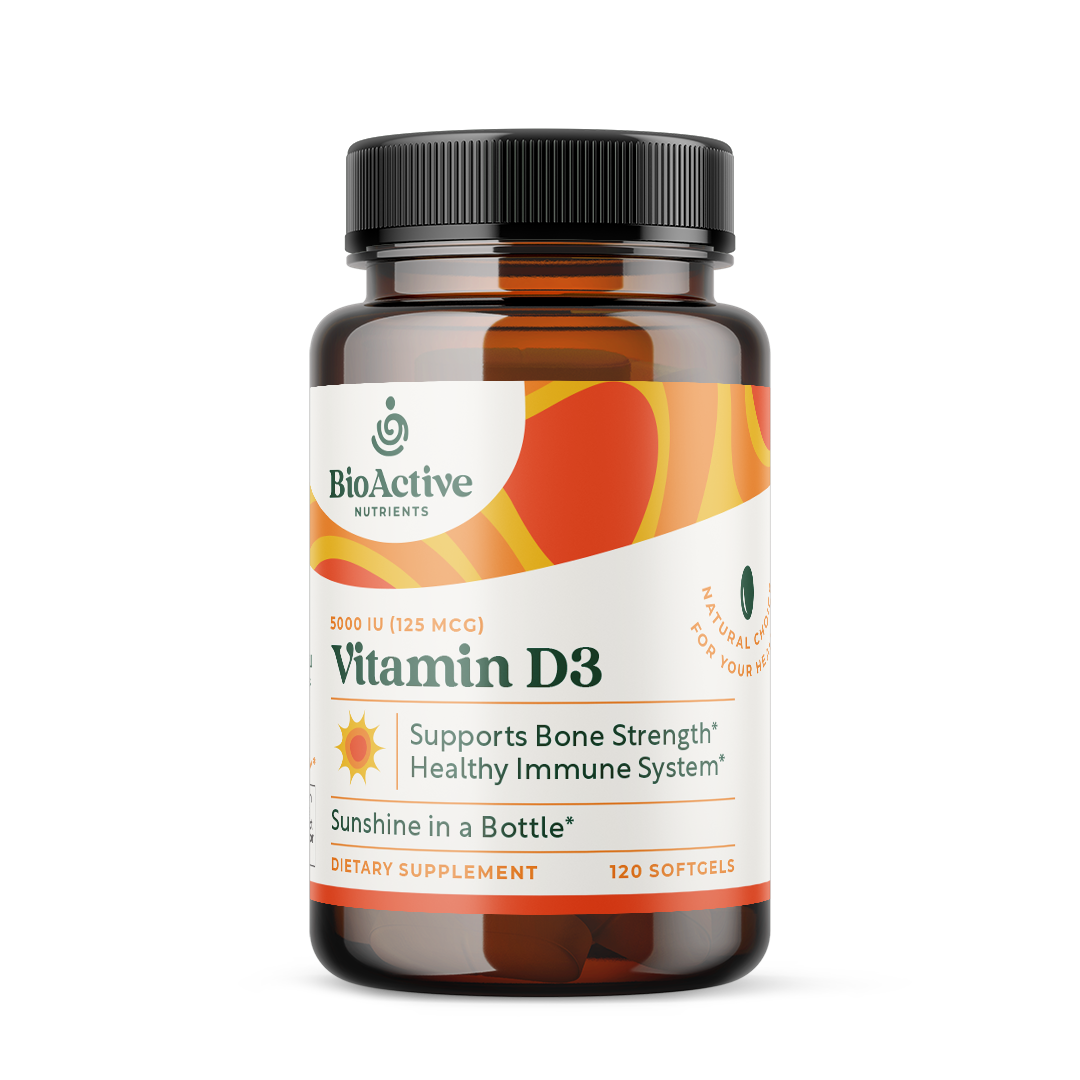Maximize Your Health While on GLP-1 Medications
Prescription medications play a crucial role in maintaining our health and wellbeing. Incorporating a balanced diet, considering targeted supplementation, and consulting with your healthcare provider can help ensure you maintain optimal nutritional health while benefiting from your medications.
GLP-1 medications are among the latest advancements in diabetes and weight loss management, and include medications like Ozempic, Wegovy, Trulicity, and Mounjaro. While they offer significant benefits, it’s important to be aware of potential nutrient deficiencies that may arise during treatment. As these medications work to regulate blood sugar levels and promote weight management, it may impact your body’s absorption of essential nutrients. Adequate protein intake, along with vitamin B12, vitamin D, iron, and calcium intake is particularly important when using GLP-1 medications.

Protein
Protein is vital for building and repairing tissues, supporting muscle growth, and maintaining a healthy immune system. It also helps you feel fuller for longer, making it a great ally for weight management. Enhance your diet with high protein foods while taking a GLP-1, such as eggs, dairy, nuts, beans, chicken, or fish.
You can add more protein to your diet using protein powder! We have options in vanilla, chocolate, and organic mixed berry on our online store!

Vitamin B12
Vitamin B12 is important for red blood cell formation, cell metabolism, nerve function, and DNA production. Vitamin B12 is commonly found in foods such as fish, shellfish, meat, eggs, and dairy products. It is also available as a dietary supplement as vitamin B12 or included in a multivitamin.
Looking for a B12 supplement? Shop our Vitamin B Complex that is available online!

Vitamin D
Vitamin D promotes calcium absorption in the gut. This helps maintain bone and muscle health. Vitamin D is found in a few foods such as fortified milk and fish. Most vitamin D is produced by your body in response to sunlight. It is also available as two different types of dietary supplements, Vitamin D2 and Vitamin D3. Both forms are equally effective at improving vitamin D deficiency.
Looking for a Vitamin D supplement? Check out our Vitamin D3, available in our online store.
Iron
Iron is important for the formation of red blood cells and muscle cells, and energy production. Sources of iron include meat, fish, and beans. Iron supplements are available over the counter. Talk with your healthcare provider to see if you need to take iron supplements as too much iron can also be bad for your health.
Calcium
Calcium is an important mineral that can help with bones, your heart, muscles, and nerves. Calcium is present in many foods in our diet including dairy, dark leafy greens, fish, and fortified foods. There are several types of calcium supplements available over the counter including calcium citrate and calcium carbonate.
Consult with your healthcare provider to determine which supplements are right for you. Also consider including foods high in these essential nutrients into your diet. Taking these proactive steps can help you maintain optimal nutritional health while benefiting from your medications.
Looking for a larger selection of supplements? Get 15% off your first order from Blue Sky Vitamin!
Sources:
https://www.healthline.com/health-news/nutrient-deficiency-risk-wegovy-zepbound
https://ods.od.nih.gov/factsheets/VitaminD-HealthProfessional/
5 Tips for Healthy Skin
The outside of your body is just as important as the inside, with your skin being the first line of defense against the world. Healthy skin not only protects you but can also provide clues to your overall health, which is why you should always take good care of your skin.
What Does Healthy Skin Protect You From?
While we know that our skin is a barrier against the outside world, what exactly is it protecting us from on a daily basis?¹
Environment
Your skin helps to protect you and keep you safe from a variety of different environmental factors. It helps to regulate body temperature and protect against excessive heat and cold, along with the sun’s rays. The melanin in your skin is the first line of defense against the sun, with higher melanin content providing greater protection.²
Infection
If you happen to scrap your knee or are healing from surgery, don’t worry because your skin helps to protect and heal you from certain wounds you may get. It helps to heal itself by working with other parts of your body to go through the different stages of wound healing, which allows your body to help fight off germs and any other infections that may arise.³
Chemicals
Your skin also helps to protect you against harmful chemicals in the air or that you may happen to encounter. There is a tough outer lay called the “stratum corneum” which acts a barrier that prevents deeper absorption of most chemicals. This layer of skin creates a waterproof like seal that helps to repel these substances.¹¹
How To Maintain Healthy Skin
Even though your skin does a good job at protecting you, there are ways that you can help yourself and your skin stay healthy.
Treat your skin gently
You should always make sure to treat your skin gently, since daily cleansing and shaving can often take a toll on your skin. With some ways to be gentler with your skin being:
-
Limiting your time in hot water, as that can remove essential oils from your skin
-
Avoid harsh soaps and perfumes.
-
Pat your skin dry after being in water, since this allows your skin to retain some moisture.¹²
Protect your skin from the sun
Protecting your skin against the sun can not only help protect you from those painful red sunburns, but help to keep your skin healthy.⁴ Some ways to help prevent damage from the sun would be:
-
Wear sunscreen even if it isn’t sunny outside, and make sure to get the correct type or your skin.
-
Wear clothing that blocks UV rays.
-
Don’t use your vitamin D deficiency as an excuse to go out unprotected in the sun, you can always get a vitamin D supplement from a local pharmacy if needed.
-
Avoid tanning beds, since they expose you to excessive UV radiation in a small period and can have irreversible effects.
Manage stress
Stress has effects on your whole body, but did you know that stress can affect your skin as well? It can cause a chemical response in your skin that makes it more sensitive and reactive. It can cause skin issues to flare up such as psoriasis, rosacea, and eczema, and make these flare-ups slower to heal. There are ways that you can help keep skin healthy, even when you’re stressed:
-
Don’t neglect your skin. Taking care of your skin and establishing a solid skincare routine can help keep your skin healthy and happy.
-
Take time for yourself, even if it is just ten minutes to read a book or take a bath, do something that helps to relax you.
-
Get enough sleep every single night. This can help to lower your stress levels
Know that you can set limits and boundaries when you’re feeling stressed. It is okay to say no when you’re not feeling well.⁵
Eat a healthy diet
What you eat every day can affect your whole body, but especially your skin. Our bodies rely on proper hydration and a balanced diet of fruits, vegetables, grains, healthy fats, and protein to function.⁶ If you aren’t getting the essential vitamins and nutrients your body needs, then your skin and body won’t function the same.
To ensure you’re eating a healthy diet full of essential nutrients, you should:⁷
-
Follow the recommended portions for fruits and vegetables in every single meal.
-
Cut down on processed foods. These can cause issues with your body and skin.
-
Drink the recommended amount of water for your body weight every day.⁸
Avoid smoking and drinking
Alcohol and tobacco are substances that you should avoid if you want to have healthy skin, as they can have adverse side effects.
If you drink alcohol regularly, then you may experience a variety of side effects. Short term effects include dry skin and flushing of the skin, or your skin taking on more of a red tint. The long-term side effects are an increased risk of skin infections and skin cancer due to the prolonged alcohol use weakening your immune system.⁹
Regular tobacco smokers may experience different effects, such as yellowing of the fingers and nails, and discoloration of the teeth in the short term. Long-term tobacco use may lead to dry skin, uneven skin pigmentation, baggy eyes, a saggy jawline, and deeper wrinkles and furrows on your skin. ¹⁰
Your skin is a vital organ and the largest organ that you have, and you should always try to take care of it. No matter your age, there are always little things that you can do to take better care of your skin!
Sources:
-
https://healthmatters.nyp.org/6-tips-to-protect-your-skin-from-the-sun/
-
https://www.webmd.com/beauty/the-effects-of-stress-on-your-skin
-
https://akronmohs.com/blog/diet-and-skincare-how-big-an-impact-does-diet-have-on-your-skins-health/
-
https://www.nhs.uk/live-well/eat-well/how-to-eat-a-balanced-diet/eight-tips-for-healthy-eating/
-
https://www.medicalnewstoday.com/articles/alcoholic-skin#long-term-effects
- « Previous Page
- 1
- 2
- 3
- 4
- …
- 62
- Next Page »
